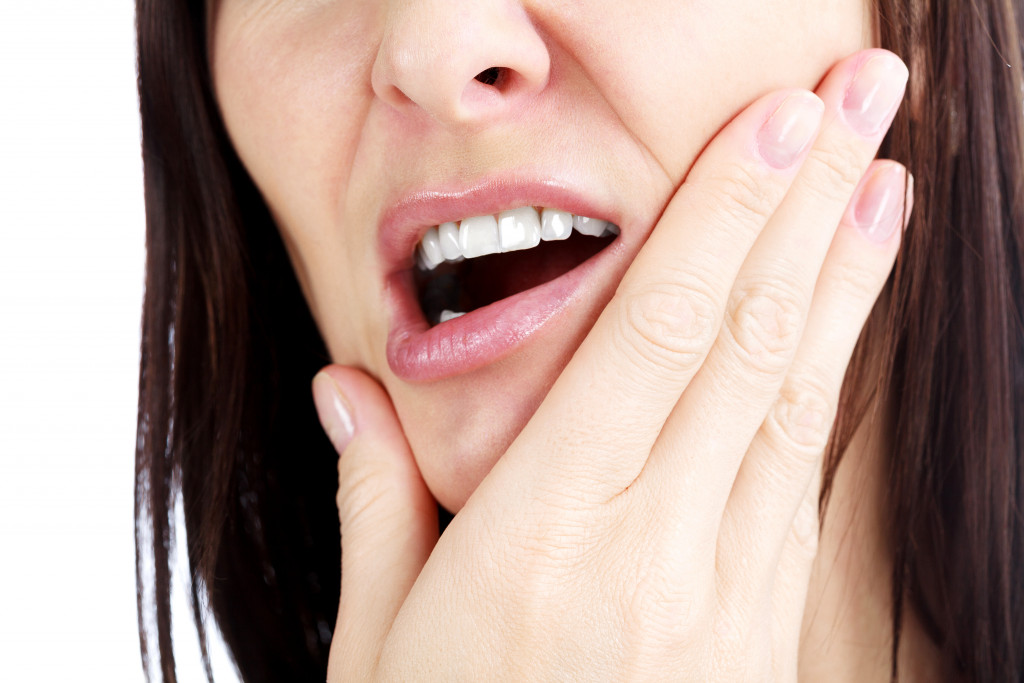The human jaw is an essential part of the body. It’s used for many things, such as talking, chewing, and yawning. However, because it’s one of the most used parts of the body, it’s also susceptible to problems. Various problems concern the jaw. Here are some of them.
Teeth Grinding
Teeth grinding, also called bruxism, is a common problem that can occur at any age. It’s characterized by clenching or grinding your teeth, often at night. It can lead to jaw pain, headaches, and even tooth damage.
TMJ Disorder
TMJ disorder is a condition that affects the temporomandibular joint, which is the joint that connects your jaw to your skull. It can cause pain in your jaw, face, neck, and shoulders. It can also cause clicking or popping sounds when you move your jaw.
TMJ can be problematic because it can be chronic. It can also be challenging to diagnose.
Lockjaw
Lockjaw, also called trismus, is a condition that causes your jaw to become locked in place. It can be painful and make it difficult to open your mouth. There are several possible causes of lockjaw, including infection, injury, and teeth grinding.
Lockjaw can lead to all sorts of problems. It can lead to problems with eating, drinking, and talking. It can also interfere with dental care.
Jaw Fracture
A jaw fracture is a break in the jawbone. It can occur due to an injury, such as a fall or a blow to the face. Jaw fractures can be painful and make it difficult to move your mouth. If you think you may have a jaw fracture, see your dentist or doctor right away. They will take X-rays to confirm the diagnosis and determine the best course of treatment.

Treatments for Jaw Problems
There are various treatments available for jaw problems. The treatment you receive will depend on the specific problem you’re experiencing. One of the most common is wearing a mouthguard.
Mouthguards
Mouthguards are typically made of rubber, plastic, or a combination. They fit over your teeth and help protect them from grinding and clenching. They can also help protect your jaw from injury in a fall or other accident.
However, the best use of mouthguards is for bruxism. Bruxism can lead to jaw pain, headaches, and even tooth damage. Mouthguards can help protect your teeth from the wear and tear of grinding and clenching.
Implants
Sometimes jaw problems can be caused by the lack of teeth or the inflammation of the gums. When people have these problems, they start chewing awkwardly. Getting dental implants is the best way to do that. If you’re too busy to get implants, there are now same-day implants. It only takes about thirty minutes for the procedure to be completed. The implants are a much more efficient way to get the procedure, and it’s something you should consider.
Surgery
In some cases, surgery may be necessary to correct a jaw problem. It’s typically only done if other treatments have been unsuccessful. Surgery can be used to treat TMJ disorder, jaw fractures, and other issues.
The surgery helps correct the alignment of the jaw and can relieve pain. However, it’s important to note that surgery is typically a last resort option and should only be considered after other treatment options have been exhausted.
Medications
Various medications are recommended for the treatment of jaw problems. These include over-the-counter pain relievers, such as ibuprofen or acetaminophen. Doctors may also recommend prescription medications, such as muscle relaxants. In some cases, injections of corticosteroids may be necessary to reduce inflammation.
Therapy
Your doctor may recommend physical or occupational therapy to help treat jaw problems. These therapies can help improve the range of motion and reduce pain. They may also help with TMJ disorder by teaching you how to use your jaw muscles properly.
Splints
Splints are devices worn in the mouth and used to hold the teeth in place. They’re often used to treat bruxism and TMJ disorder. Splints can help align the teeth and reduce stress on the jaw muscles.
Home Remedies
Several home remedies can be used to treat jaw problems. These include ice packs, heat packs, and massage. Applying ice or heat to the affected area can help to reduce pain and inflammation. Massaging the jaw muscles can also help to relieve tension and discomfort.
Jaw problems are common, but there are several ways to deal with them. The options listed above are some of the best. However, if your jaw pain or problems worsen, be sure to see your dentist or doctor immediately. They will be able to properly diagnose the problem and recommend the best treatment options for you.
